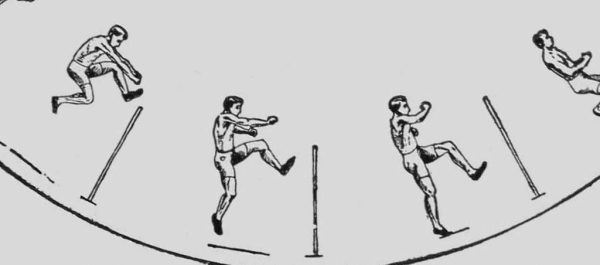Are Reparations Necessary?
Jessica Ann Mitchell Aiwuyor, the founder of National Black Cultural Information speaks about her views on reparations. In this Zoom call she discussed how not only the lineage of direct descendants should receive reparations but any black people that have suffered the harm of what came afterwards.
January 10, 2023
Abraham Cumberbatch purchased a sugar plantation on the Caribbean island of Barbados in 1728. The people of Barbados have been seeking reparations for years over the enslavement of their ancestors. In recent news it was reported that “Doctor Strange” star Benedict Cumberbatch’s family is being asked to pay reparations to the descendants of the slaves which built the family’s wealth. The Cumberbatch family was handed about $3.6 million in today’s money due to loss of human property.
The reasons for the Carribeans seeking reparations is because of all the hurt the island went through during the slave trade. The point of reparations is to make amends for wrongdoings, usually by paying money. Being a person of color in America, reparations is something that is discussed within our own communities but has not been an action that anyone has taken.
Are reparations necessary? In a Pew Research center article, statistics were taken on how many Americans actually think reparations are necessary. 80 Percent of white Americans view reparations as negative or unnecessary; but the next question that arises is how many of those Americans responding to the poll were people of color? In that same study, about 77 percent of Black adult Americans agree that descendants of enslaved peoples should be repaid in some way, 18 percent of White Americans say the same.
After reading the article I took it upon myself to ask students if reparations were necessary or if America should take part in paying reparations. Senior Onyx Grimes said, “I don’t think reparations are necessary at this point in time. I don’t think we should forget about the history surrounding slavery in the slightest, but seeking reparations would only make us dependent on white America. I think instead a better solution would be to focus on healing the current generation of black people so that we can get what we need ourselves by any means necessary; rather than feeling indebted because its been proven many times that the government will never truly repay or try to alleviate us for what they’ve done to black people.”
I agree with Onyx to a certain extent, Yes I think it would be amazing if more black Americans were in government jobs and directly apart of the conversation when it comes to our rights and what we can and can not do, maybe there would be order and an actual change, however I disagree with his statement saying that seeking reparations would make us dependent on ‘White America’ because the idea of reparations is them paying back what is rightfully ours in the first place.
As the conversation continues, Onyx went on to say, “We should focus on taking more government positions so that we can gain our deserved advantages in this country without asking for it.”
A different argument that I heard in my investigation of perspectives on reparations was from senior Wyatt Saufer, who said “Looking at how this would be organized into a racially charged event with no living soul that has ever experienced American slavery and being split into three camps of either paying, being paid or not being involved, it doesn’t make sense as to why this would be a solution.” Wyatt took the ‘logical’ approach but he’s also not a person of color and thus may not realize the lasting effects of slavery on Black Americans
In a “Big Ideas” article from Brookings titled, “Why we need reparations for Black Americans,” Rashawn Grey and Andre M. Perry discussed the difference of wealth between white Americans and Black Americans, because they feel like everyone is entitled to the American dream but it looks different based on the color of your skin. According to the article, “Today, the average white family has roughly ten times the amount of wealth as the average Black family. White college graduates have over seven times more wealth than Black college graduates.”
Jessica Ann Mitchell Aiwuyor, the founder of National Black Cultural Information, spoke about her views of reparations, in a March 29, 2022 Reparations Task Force witness testimony zoom call, recorded and turned into a Youtube video. She said, “For reparative justice both lineage and harm hold prioritization towards harm-based reparations consideration to direct descendants. Lineage is important to reparations discourse because our lineage was subject to ongoing terror and systemic oppression, however the concept of linkage should not be limited to the system as a child of slavery.”
Senior Orion Martizer agreed with the idea that the historical mistreatment of Black Americans necessitated reparations. “Reparations won’t undo the cruelty and evil that has been perpetrated,” he said. “nor does it meet the bare minimum of positive actions that need to be taken, but they are a step-albeit a small one-in the right direction.”
As a reporter I decided to interview Orion and Wyatt, who aren’t people of color because I wanted to understand their point of view. I never realized that white Americans actually don’t know how much African Americans are still truly at a disadvantage because of how our economic system was based upon the financial exploitation of slaves.
I personally believe that reparations are absolutely necessary as long as America approaches them correctly; then reparations towards the Black American community should not be an issue.













Hannah • Jan 10, 2023 at 1:35 pm
Beautiful and informal opinion piece.